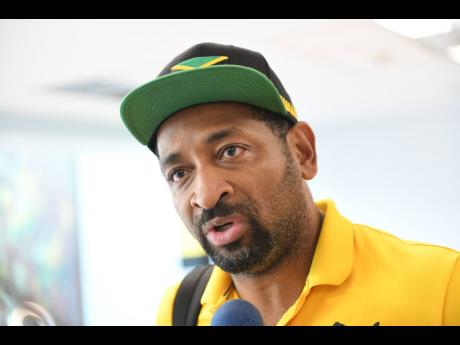Editorial | Review athletics governance
David Riley, the technical leader for Jamaica’s team at the World Under-20 championships in Lima, Peru, wants “some tweaking” in how athletes are prepared for these kinds of games.
“We have to look at it and see how we get our training programmes organised that our athletes are in better shape when we want them to race against the world,” Mr Riley said after the games.
How the island plans for big athletics outings may not be totally broken. It is, however, clear that a major review of existing processes, and perhaps even an overhaul, of the Jamaica Athletics Administrative Association (JAAA) and the Jamaica Olympic Association (JOA), is necessary.
They need to be more transparent and accountable.
These organisations are the major governing bodies for track and field athletics and related programmes in the island.
Especially when compared to other countries of similar size and development, Jamaica’s performance in Lima, and earlier at the Olympics, was highly credible.
In Lima, the junior athletes won five medals – four gold and a bronze. They were seventh on the league table of medals.
In Paris, the haul was six medals – a gold, three silver and two bronze. The island was 44th among the 206 countries, territories and representatives at the games.
But by the country’s own standards, Lima and Paris represented relative underperformance.
On track at the Olympics, only Kishane Thompson, with silver in the men’s 100 metres, and Rasheed Broadbell, with bronze in the 110 metres hurdles, managed to secure medals. Significantly, the other medals were won in field events, including gold in the men’s discus throw.
At the Tokyo Olympics three years ago, Jamaica won nine medals, most of them on the track; the haul was 12, including three gold, at last year’s World Athletics Championship. At the two previous World Under-20s, in Nairobi, Kenya, in 2021, and Cali, Colombia, two years ago, the tallies were 11 and 16 medals, respectively.
In Paris, several of the top athletes developed or aggravated injuries.
In his observations about Lima, Mr Riley suggested that issues to be ‘tweaked’ include the long gap between the domestic junior athletics season, including the national trials, and the time of the World Under-20s. This, of course, was no secret and ought to have been planned for.
DEEPER PROBLEM
However, Michael Dyke, a senior coach who was part of the team in Lima, betrayed in an interview with Television Jamaica a deeper problem that some believe might border on management and administrative malfeasance by the JAAA.
Peru is in South America, on its Pacific side. It’s in the southern hemisphere. Its cooler ‘winter’ months are between June and August when temperatures in Lima range between the high 50s and up to 68 degrees Fahrenheit. The World Under-20 Athletics Championships was held in a period of transition from winter to spring. Climatic information about Peru and Lima are not hard to find.
It is unsurprising that, being accustomed to temperatures in the high 80s and 90s, the Jamaican athletes would find this period in Lima cold. What is surprising was Mr Dyke, in his TVJ interview, speaking of the conditions, especially the cold, that faced his athletes. “It affected several athletes,” he said.
The JAAA might not have been able to do anything about the conditions, but at least the athletes should have been psychologically prepared for it. That is part of the job of the JAAA.
Put another way, it is the JAAA’s job to provide Jamaica’s athletes with the opportunities, circumstances and environment in which they can perform at their optimum. Sometimes, that is as basic as providing information on climate and what athletes might do, as best as possible, to adapt to the environment.
CLIMATE MAJOR ISSUE
Climate was a major issue in Paris. As a consequence of global warming and climate change, the city has been facing scorching summer temperatures.
Wanting to run a ‘green’ games, the organisers of the Olympics decided against air conditioning the rooms in the Olympic village. They opted instead for an underfloor water cooling system and fans to limit the emission of greenhouse gases.
Many countries, and richer elite athletes who could afford it, paid for air-conditioned accommodations outside the village.
Rachael Irving, a professor of sports science and biochemistry at The University of the West Indies (UWI), has researched the effect of heat on athletes.
Prof Irving has written in this newspaper about her attempts to address these issues and mitigation with the JAAA and the JOA.
“Even though for more than two months I tried to meet with those who would make a difference, to date I am yet to get a reply from the JOA or the JAAA,” she wrote.
Neither organisation has responded to her claim. Nor has the JAAA or the JOA published its internal review of the games, assuming they do that type of in-depth analysis.
Similarly, they have not provided deep or thoughtful responses to the several management glitches and quarrels – including one that caused a qualified athlete to miss the games – that are likely to have negatively impacted the team’s psychological preparations for the games.
The JAAA and the JOA will probably argue that they are private organisations, with no direct funding from the State, and are therefore accountable only to their members.
They are wrong. They happen to oversee sports in which Jamaicans are deeply invested. They, in that respect, govern in trust for citizens.
That is why both the JOA and the JAAA must not only be fully transparent in the conduct of their business, but should open their operations to a deep public review to ensure that Jamaica has in place the best system for the advancement of its athletics.
For while the country remains significantly ahead of many small countries in the organisation and output of its athletics, the gap, on the evidence, is narrowing.

